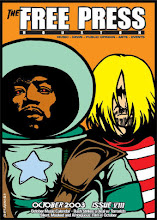Paris 36

Paris 36 (Faubourg 36) presents a sweeping vision of 1930s Paris, set in a music hall but encompassing the social and political change taking place between the have and the have nots. The film by writer/director Christophe Barratier varies in tone, for instance juxtaposing scenes of workers having an attempted strike thwarted with violence with the lyricism of putting on a musical revue.
Pars 36 starts with defeated old man Pigoil (Gérard Jugnot) confessing to police about a shooting death and then flashes back to the beginning of the story. Pigoil's wife has left him taking their child. All of them perform or work for the Chansonia. As the story proceeds the Chansonia has shuttered its doors, an event fueled by cruel well-dressed businessman Galapiat (Bernard-Pierre Donnadieu) who's just purchased the entertainment palace with plans to tear down and rebuild. Galapiat also wields political power and is in fact the man behind the union busters. In one of Paris 36's more dramatic scenes Galapiat's political connections tell him to lay off the violence before they can provide any quid pro quo for his campaign contributions.
Enter charming chanteuse Douce (Nora Arnezeder) who becomes the object of everyone's affection, from the corrupt bosses to the stage hands. Paris 36 works best when emphasizing the musical angle. The drama portion involving labor agitators and attempts by the actors to pursue other avenues of employment don't exactly lead to dead ends yet seem at odds with the do-it-yourself theater silliness going on down the street.
Paris 36 never overstays its welcome however, especially towards the end as the story comes full circle and the homicide seen at the start is giving full explanation. Tech credits are superb. Many times Paris 36 sparks a scene with spectacular establishing shots of the Chansonia and its relation to Paris. The musical interludes are always engaging. Paris 36 is playing exclusively at the River Oaks Three.









0 Comments:
Post a Comment
<< Home